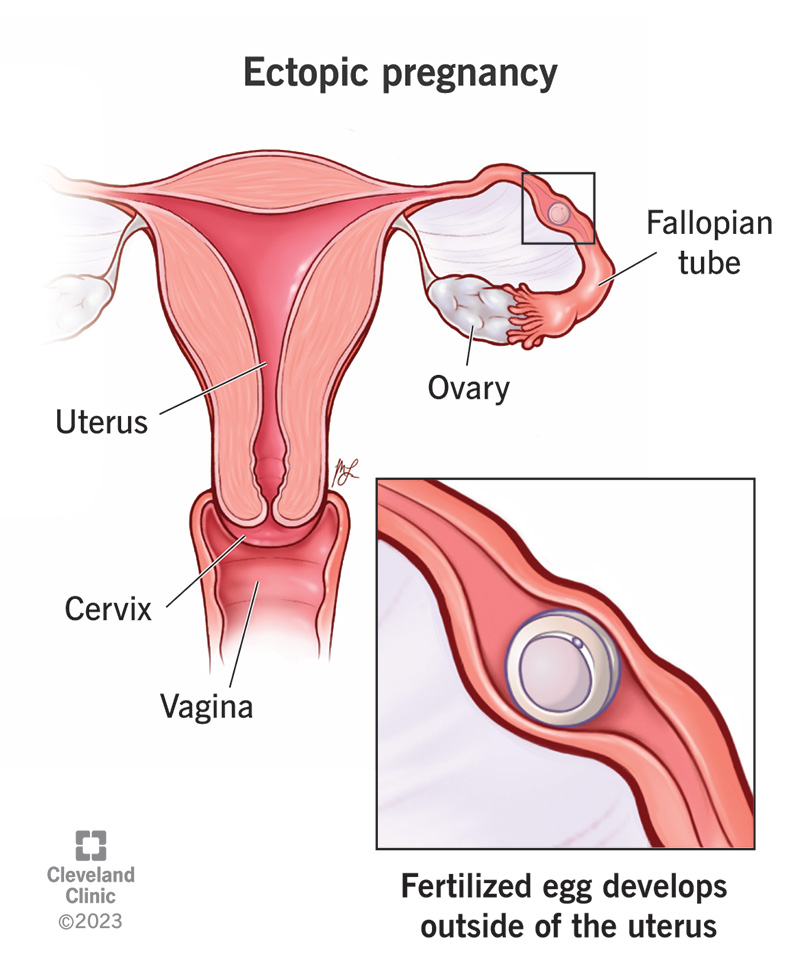Ectopic Pregnancy: A Comprehensive Guide to Symptoms, Diagnosis, and Treatment
Introduction
An ectopic pregnancy occurs when a fertilized egg implants outside the uterus, most commonly in the fallopian tube. This condition is a medical emergency that requires prompt diagnosis and treatment to prevent life-threatening complications. Understanding the symptoms of an ectopic pregnancy is crucial for early detection and timely intervention.
Symptoms of an Ectopic Pregnancy
The symptoms of an ectopic pregnancy can vary depending on the stage of the pregnancy and the location of the implantation. However, some common signs and symptoms include:
1. Abdominal Pain:
- Sharp, stabbing, or cramping pain in the lower abdomen or pelvis
- Pain that may worsen on one side of the abdomen
- Pain that may radiate to the shoulder or neck
2. Vaginal Bleeding:
- Irregular or abnormal vaginal bleeding
- Bleeding that is lighter or heavier than usual
- Spotting or brownish discharge
3. Missed Period:
- A missed menstrual period, especially if you are sexually active
- Pregnancy symptoms, such as breast tenderness or nausea, despite a missed period
4. Pelvic Pressure:
- A feeling of pressure or fullness in the pelvis
- Discomfort or pain during intercourse
5. Other Symptoms:
- Nausea and vomiting
- Diarrhea
- Dizziness or fainting
- Shoulder pain
- Rectal pain
Risk Factors for Ectopic Pregnancy
Certain factors can increase the risk of developing an ectopic pregnancy, including:
- Previous ectopic pregnancy
- Pelvic inflammatory disease (PID)
- Endometriosis
- Use of an intrauterine device (IUD)
- Smoking
- History of pelvic surgery
- Use of fertility drugs
Diagnosis of an Ectopic Pregnancy
If you experience any of the symptoms of an ectopic pregnancy, it is essential to seek medical attention immediately. Your doctor will perform a physical examination and ask about your symptoms and medical history. They may also order the following tests:
- Pelvic ultrasound: This imaging test uses sound waves to create images of the uterus and fallopian tubes. It can help determine the location of the pregnancy and rule out other conditions.
- Blood tests: Blood tests can measure hormone levels, such as human chorionic gonadotropin (hCG), which is produced during pregnancy. Low or abnormal hCG levels may indicate an ectopic pregnancy.
Treatment of an Ectopic Pregnancy
Ectopic pregnancies cannot continue to a viable birth and require prompt treatment to prevent serious complications. The primary treatment options include:
1. Medication:
- Methotrexate is a medication that can be used to terminate an ectopic pregnancy. It is most effective when the pregnancy is detected early.
2. Surgery:
- Laparoscopy: A minimally invasive surgical procedure that involves making small incisions in the abdomen to remove the ectopic pregnancy.
- Salpingectomy: A surgical procedure to remove the affected fallopian tube.
Complications of an Ectopic Pregnancy
If left untreated, an ectopic pregnancy can lead to life-threatening complications, including:
- Tubal rupture: The fallopian tube can rupture, causing internal bleeding and shock.
- Hemorrhage: Severe bleeding can occur if the ectopic pregnancy ruptures or if the placenta separates from the uterus.
- Infection: An ectopic pregnancy can become infected, leading to sepsis.
Recovery from an Ectopic Pregnancy
Recovery from an ectopic pregnancy depends on the treatment method used and the severity of the condition. After treatment, you may experience some pain, bleeding, and cramping. It is important to follow your doctor’s instructions and attend all follow-up appointments.
Emotional Impact of an Ectopic Pregnancy
An ectopic pregnancy can be a physically and emotionally challenging experience. It is common to feel a range of emotions, including grief, anger, and sadness. Seeking support from family, friends, or a therapist can help you cope with the emotional impact of this condition.
Prevention of Ectopic Pregnancy
While there is no surefire way to prevent an ectopic pregnancy, certain measures can reduce the risk, such as:
- Using contraception to prevent unintended pregnancies
- Treating pelvic inflammatory disease promptly
- Avoiding smoking
- Minimizing the use of fertility drugs
Conclusion
Ectopic pregnancy is a serious medical condition that requires prompt diagnosis and treatment. Understanding the symptoms and risk factors is crucial for early detection and timely intervention. If you experience any of the symptoms of an ectopic pregnancy, seek medical attention immediately. With proper treatment, most women can recover from an ectopic pregnancy and go on to have healthy pregnancies in the future.
